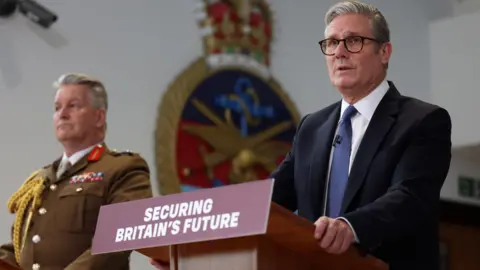In recent months, the UK government’s decision to formalize an agreement regarding the Chagos Archipelago has garnered significant attention. This move, which involves complex legal, diplomatic, and geopolitical considerations, marks a pivotal chapter in the long-standing dispute over the islands. Understanding why the UK signed this deal now requires examining the confluence of legal pressures, international relations, and strategic interests that have shaped this decision.
Historical Context and Legal Developments
The Chagos Archipelago, located in the Indian Ocean, has been a contentious territory since the 1960s. The UK decolonized Mauritius in 1968, but controversially separated the islands to establish a British Indian Ocean Territory (BIOT). The local population, primarily of Chagossian descent, was forcibly removed to facilitate the US military’s Diego Garcia base, a key strategic asset for Western military operations.
Legal battles over the islands have persisted for decades. The most significant recent development occurred in 2019 when the International Court of Justice (ICJ) issued an advisory opinion declaring that the UK’s continued administration of the Chagos Islands is unlawful and that the UK should end its control “as soon as possible.” The ICJ’s opinion, though non-binding, carried considerable moral and legal weight, compelling the UK to reconsider its stance.
The Impact of International Pressure
The ICJ ruling intensified international scrutiny and increased pressure on the UK government. Several countries and international organizations, including the United Nations General Assembly, condemned the UK’s policies and called for decolonization of the archipelago. The UN General Assembly subsequently adopted a resolution demanding the UK relinquish control, giving the UK a deadline to comply.
In response, the UK faced mounting diplomatic isolation and potential repercussions in international forums. The timing of signing the deal appears to be a strategic move to mitigate adverse fallout and demonstrate a willingness to engage diplomatically, albeit within certain constraints.
Geopolitical and Strategic Considerations
Beyond legal and diplomatic factors, strategic interests heavily influence the UK’s decision. Diego Garcia remains a critical military asset for the UK and its allies, serving as a key hub for operations in the Middle East, South Asia, and beyond. Any move that could jeopardize access or provoke instability in the region would be detrimental.
By reaching an agreement on the future governance or potential resettlement of the Chagos Islands, the UK aims to balance international expectations with its strategic imperatives. The timing suggests a calculated approach to avoid escalation while retaining control over a vital military installation.
Domestic Politics and Public Opinion
Domestically, the issue of the Chagos Islands stirs debate over colonial legacy, human rights, and the UK’s global image. The government’s decision to formalize a deal now may also be influenced by internal political considerations, including responding to advocacy from human rights groups, maintaining diplomatic credibility, and managing public perceptions.
Economic and Environmental Factors
While less prominent, economic considerations—such as potential tourism development or resource exploration—and environmental concerns about preserving the islands’ fragile ecosystems also play a role. An official agreement could facilitate sustainable management and international cooperation.
Conclusion: A Strategic Pivot in a Long-Standing Dispute
The UK government’s decision to sign the Chagos deal now is multifaceted. It reflects a response to legal rulings and international pressure, a desire to safeguard strategic military interests, and an effort to manage diplomatic relations. While legal obligations push for decolonization, geopolitical realities necessitate cautious diplomacy.
Ultimately, this move signals a nuanced approach—aiming to navigate a complex web of legal, diplomatic, and strategic interests—marking a significant moment in the ongoing saga of the Chagos Islands. The coming months will reveal how this agreement influences the future of the territory, the local population, and UK’s international standing.
Email Us on editorial@nnafrica.com













